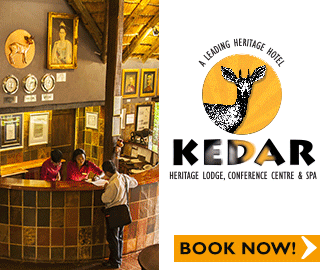
Street Life In Abijan
BY ADEPOJU PAUL 13TH MAR, 2014 07:30

Beggars are mushrooming in streets, many workers stay at home because of transport
problems and schools are closed despite some weak attempts to resume classes."
"
Everyone said, as we have said time and again through history, never again. But 17 years later in Ivory Coast, again the horrors unfolded. Again it took a (former)rebel army — itself responsible for as lew of bone-chilling atrocities — to bring the conflict to a head, triggering a level of fighting that was seemingly finally enough to compel decisive action. Mass graves litter the west of the country.
Blood is dripping from the hands of both Gbagbo and Ouattara’s forces, including massive campaigns of rape and massacres of hundreds of people. More than a million people are estimated to bedisplaced. Ivorians continue to flee thecountry amid widespread reports of reprisal killings. Neighbouring Liberia, which has struggled and made impressive progress following its own civil war, has become embroiled in the crisis with more than 100,000 people pouring in from Ivory Coast, while hundreds, if not thousands, of Liberian ex-combatants went the otherway to fight as mercenaries. Now they’regoing back to Liberia with guns and there are rumours of pro-Gbagbo forces usingthe remote borderlands of Liberia as aplace to regroup, in order to launch anothermilitary challenge to Ouattara’s holdon power.
As such, the conflict threatens to engulf an already war-ravaged, fragile region where civil wars have a tendency to burst their borders.(For example, Charles Taylor invaded Liberia in 1989 from Ivory Coast to set offthe civil war there; numerous other factions would go on to use Ivory Coast and Burkina Faso as launch pads to try wrestc ontrol of Liberia from Taylor over the 14-year course of the war. A rebel force invaded Sierra Leone from Liberia to start what would become an 11-year civil warthere).
The economy of Ivory Coast, once the strongest in the region, has nearly collapsed. Banks haven’t been in business for months and sanctions against Gbagbo have stopped virtually all economic activity in the country. Investors will – and should be – wary of putting money into the country for a long time to come. And, perhaps most damaging of all, the divisions that have split this country for decades, between tribes, between north and south, between so-called “true” Ivorians and more recent immigrants, have all been rekindled, reignited, rearmed, after a decade of trying to heal those divides.
The work done to achieve peace amounted to what many now call the Second Ivorian War. The incumbent president's people have now openly resorted to violence against Ouattara's supporters. Now the tension is mounting dramatically in town to the extent that everybody should be careful before voicing their views. Indeed, all areas are now infested with Gbagbo's informants.Tensions are running high. People are becoming more and more afraid because they don't know the next move of the president-elect. The situation can turn violent and I don't know what tomorrow will bring.
Street of Abijan the capital city of Ivory Coast.
Back in January 2011, in the neighbourhood of Abobo in northern Abidjan, civilians were getting dragged out of their homes in the middle of the night. Sometimes, they were killed on the spot. Other times, they were taken away, joining the ranks of the “disappeared.” “They end up over there,” residents said, nodding in the direction of a heavily forested area where rumour had it there was a mass grave, a body dump right there in the middle of Ivory Coast’s largest city that was once a gleaming beacon of progress, the Paris of Africa. Neither the UN nor journalists who tried could get past the security forces to find out if there was actually a body dump there.
Most the people taken away there were supporters of Alassane Ouattara, who was certified as the winner of Ivory Coast’s November 2010 election. The reported culprits were security forces — police, military and militia men — that remained loyal to Laurent Gbagbo, Ivory Coast’s president since 2000 who refused to step down. The Forces Nouvelles controlled northern Ivory Coast since a 2002-2003 civil war – now being referred to as the
“First Ivorian War” – and sided with Ouattara in the dispute. Gbagbo’s people justified their actions in Abobo by saying they were flushing out rebels. While Ouattara and residents said Abobo was home only to civilians trying to live their lives, word on the street was that the rebels would come. Neighbours and friends were getting picked off night after night; sisters and mothers were being raped; shots were ringing out at all hours. Soldiers and police officers under Gbagbo’s controlwere setting up roadblocks allowing no one to get in or out. Inside the virtual prison of Abobo, security forces marauded through the neighbourhood on campaigns of terror.
As far as most residents were concerned, the UN, tasked with protecting the civilian population, did nothing. On a particularly bloody day — as Gbagbo’s security forces were shooting all over Abobo and state TV was calling for attacks on foreigners, UN personnel and Ouattara supporters, and reports of mass graves were popping up everywhere — on that day, the UN sent a patrol to Abobo to protect the civilian population.They were not shot at. If they had been, they could have shot back, a fact that Charles BleGoude, Gbagbo’s youth minister who commanded gangs of thugs used for political ends, surely knew. BleGoude sent a band of unarmed young men to block the UN tanks. The young men yelled and threw stones and refused to makeway.
Eventually, the UN turned back, its ineffectual mandate exposed. Behind the line of young men, the killing and terror went on in Abobo. Later that afternoon, on a rough dirt road more closely resembling a motocross track than a city street, people stood around quietly. Market stalls were empty.A body lay on the side of the road, a man in a bright yellow and blue African print shirt, shot to shit and left in the dirt. Pools of blood lay around him. Over the next few days, it went on and on. Residents set up makeshift barricades throughout the neighbourhood, broken tables and chairs in alleyways in hopes of slowing the onslaught of security forces and allowing time to escape. There were whispers of arms were being dispersed at night, by unknown men to unknown men, while everyone pretended to turn the other way.“No one is protecting us,” said a taxi driver and resident of the area. “They keep coming and the UN does nothing.” They were praying for the rebels to come. Out in the wild west of the country, the town of Doukeue was nearly razed to the ground by fire and some 35 people were killed in ethnic fighting.
More than 13,000 people sought refuge in a Catholic mission and the UN compound was fired on for several days, according to a staffer there. Jean-Marie Kalama, head of the UN human rights division for that region, said unequivocally that army helicopters had flown in arms and ammunition to the Guere, who traditionally support Gbagbo,before the election. The Guere were fighting their tradition rival, the Malinke, who are mainly traders from Ouattara’s northern power base. Young men from the Malinke tribe, severely outmatched, were going north of the ceasefire line to beg the FN to arm them so they could fight back. Political leaders in Ivory Coast have long been manipulating pre-existing ethic divisions as a means of securing power.In February 2011 when the first skirmishes broke out between the FN and Gbagbo’s forces, FN commanders saidatrocities committed by Gbagbo’s forces left no choice but to break the cease fire to protect the population there. In Abobo, fierce fighting raged between pro-Gbagbo forces and a group that called itself the “Invisible Commandos,” which proclaimed they were fighting to defend the community.
Gbagbo’s forces ramped up attacks on civilians in Abidjan in February, mowing down seven women who were peacefully protesting the violence, firing a mortar into a crowded market killing at least 25 people, while most the focus of the world was firmly on Libya’s uprising and the earthquake in Japan.And shortly after, in a shockingly rapid advance, pro-Ouattara forces swept down the country and within days descended on Ivory Coast’s largest city. The advance of Ouattara’s forces slowed considerably once they reached Abidjan, turning a city that once gleamed with skyscrapers and motorways into a war zone.
Residents hid in their homes in what were once upscale neighbourhoods while bullets pierced their walls and outside, looters took their cars, their bikes, and ransacked and raided their shops and offices. Then the UN and France jumped into the fray, launching air strikes against Gbagbo and propping up Ouattara’s forces. After a week or so of urban warfare, Gbagbo was bumped from his underground bunker into the hands ofOuattara’s forces. In the more than four months of turmoil it took Ouattara to become president, a nation that had been tiptoeing toward unity and peace became more bloody and divided than ever before. It’s going to be a long road out, and no one – not Gbagbo nor Ouattara – has clean hands.
Neither does the international community.It could be argued, and has been, that the electoral crisis in Ivory Coast was its own problem and should play out without foreign interference. But the election was the result of a nearly decade-long peace process brokered by the UN; the ballot was supervised and certified by the UN, at the behest of all the parties involved. Whether the international community should be there is open to debate, but when it already is there, it’s incumbent upon it to fulfill its commitments. By utterly failing to protect civilians early in the conflict – in January and in February when it was a simmering dispute rather than an all-out war – it behoved an armed conflict. With Ouattara supporters being singled out, attacked and killed, it was only a matter of time before his forces would have to intervene, lest those cries of “no one is protecting us” become too loud.
Back in the days when people were being pulled out of their homes in the night, when little skirmishes were breaking out between the Guere and the Malinke, that is when the UN should have been there to protect the people. But there was little but a circle of talk that went nowhere while the piles of bodies grew higher and the deep-seated hatred was fired up all over again, and the stage was being set for all-out war. It’s one thing to ask people to exercise restraint, to be patient while a peaceful resolution is met. But to ask for patience over months and months, while people are being systemically killed, raped and disappeared – it’s not reasonable, it’s not realistic, and it’s not humane. But no one was there – the eyes of the international community were turned steadfastly to Egypt, Libya and Japan, and the UN force in Ivory Coast was either unable or unwilling to stop atrocities against civilians.In Rwanda in 1994, it took the military advance of Paul Kagame’s rebel army to stop the genocide that killed some 800,000 people, after 100 days of dithering on the part of the international community. Rwanda’s genocide destabilized the whole Great Lakes region of Africa.








